One Muslim farmer’s quest to become totally self-sufficient
Muhsen Hassanin left his life in north London to set up a halal farm in South Wales. He and his family now live a balanced life in keeping with Islamic traditions
–
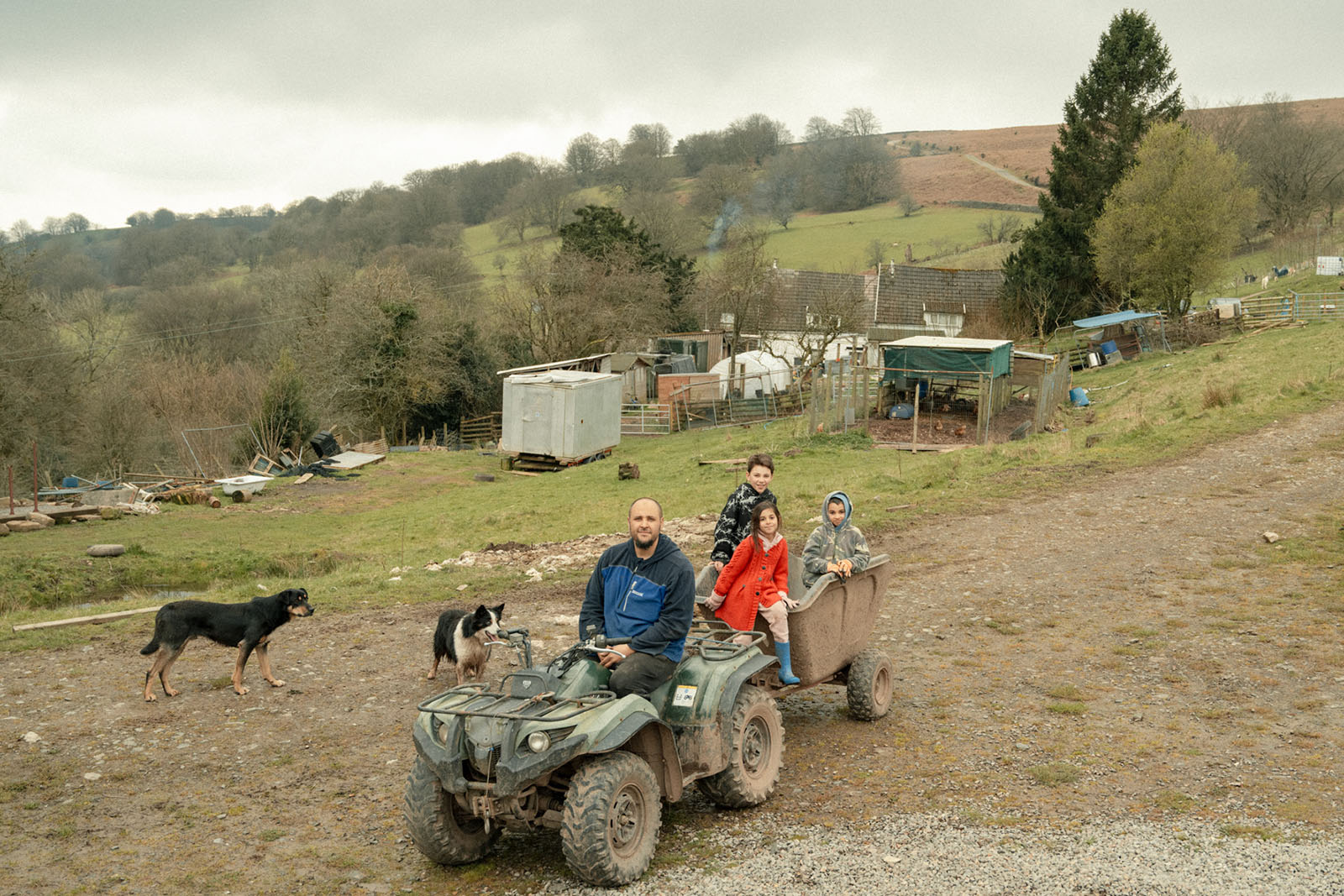
Nestled among the hills of the Usk Valley in south-east Wales, just a few miles from the former coal-mining town of Pontypool, visitors can find one of the UK’s few halal farms.
It’s a rainy March morning when I visit Harmony Farm, which covers 56 acres of woodland and greenery. Though it’s a cloudy day, standing at the base and looking out over the hills, Somerset’s Weston-super-Mare is just visible across the expansive Severn Estuary.
Just as I arrive, Muhsen Hassanin, the farm’s owner, is preparing to give the animals their breakfast. First in line are a herd of goats who headbutt one another out of the way as they scramble towards the feed. Among them is a three-month old that Hassanin’s seven-year-old daughter has lovingly named Spaghetti.
Our next stop is to see the cows — Hazel, Kebab and Shutki (named in recognition of the popular Bangladeshi curry). Hassanin feeds them by hand after dragging two large bales of hay across a field.
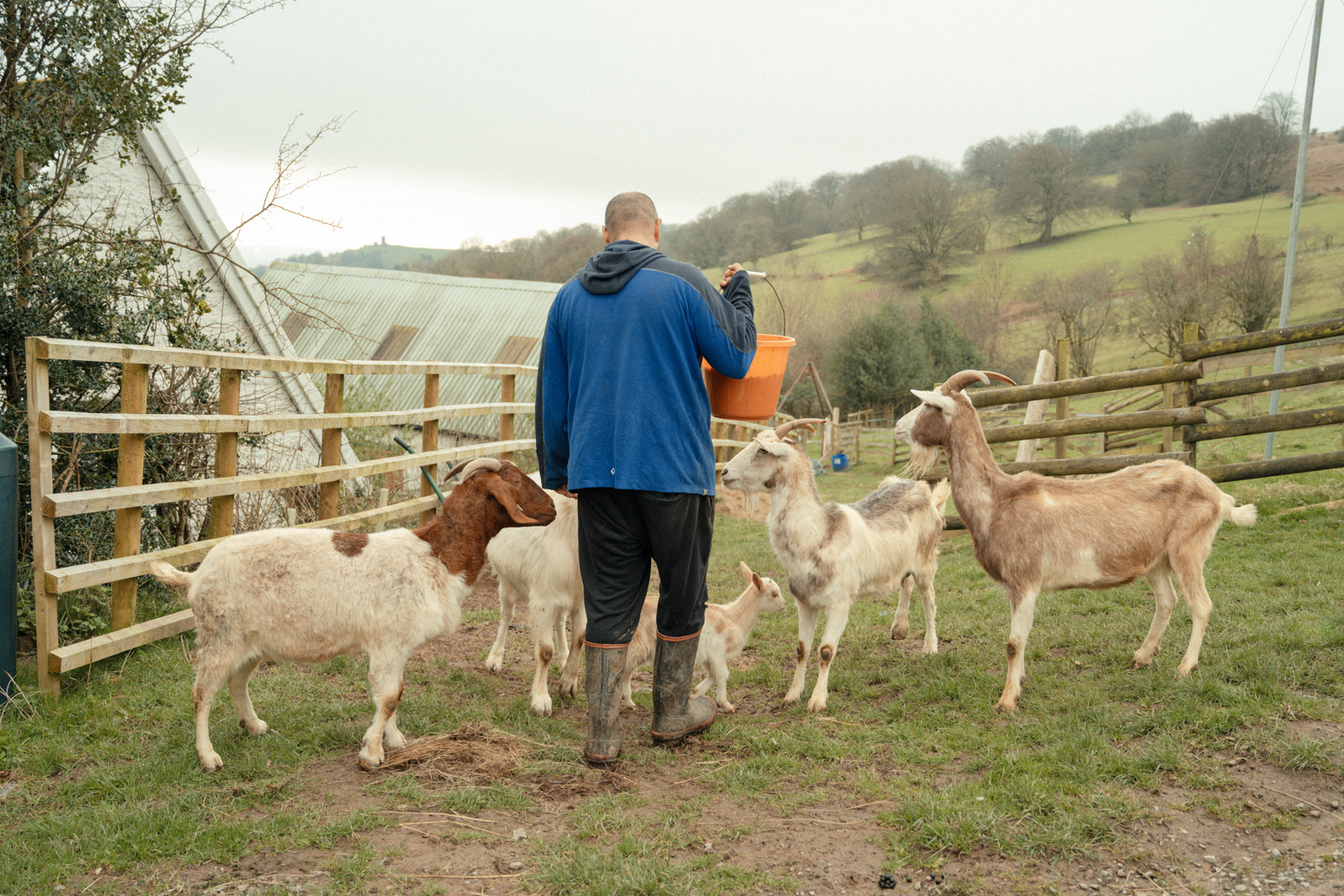
Hassanin’s current occupation is a major departure from his previous life. He convinced his entire family — his wife, their four children, his mother, brother and sister — to give up their lives in north London and relocate to the farm in 2015.
Data from the latest census show that the UK’s Muslim population is largely based in cities such as Birmingham, London and Manchester — they make up fewer than 1% of the population in most rural areas.
There is currently no data on the number of Muslim farmers across the UK. Halal Food Information Centre, a London-based organisation that aims to improve food standards while challenging misconceptions about halal food, has identified just five Muslim-owned livestock farms. These include Willowbrook Farm in Oxfordshire and Hill Farm Finest in Milton Keynes.
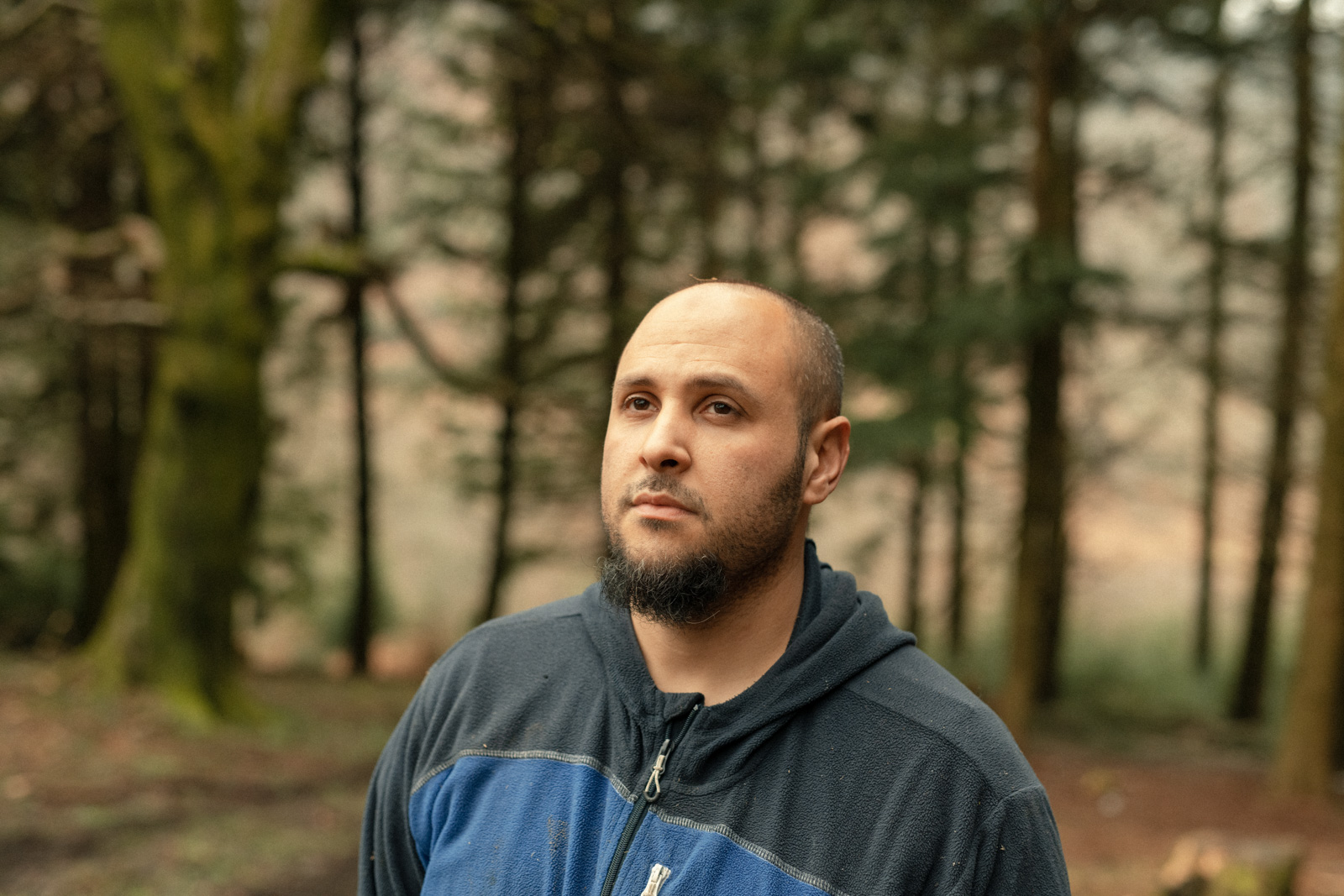
Hassanin’s move was inspired by his desire to live a balanced life in keeping with Islamic traditions. It was also a culmination of years of research in nutrition and permaculture — a form of agriculture that focuses on the growth of sustainable and self-sufficient ecosystems. In 2014, upon the advice of his sheikh, a religious mentor, Hassanin took part in a 10-day online course with world-renowned permaculture consultant Geoff Lawton.
“It was my sheikh who really directed us, as a family, into the idea of living on the land,” Hassanin said.
“There is the Islamic principle that we are custodians of the earth, and that we are responsible for every bug, every rock and tree,” he added. “That’s why, even though our religion gives us permission to kill pests, I won’t spray a single pesticide on the farm.”
Nine years on, it’s difficult to believe that Hassanin once knew little about the practicalities of running a farm. He says the most important skill to conquer was how to use a chainsaw, as 30 of the farm’s 56 acres are forested. This included learning how to fell trees.
“Without chainsaw work, we wouldn’t have fuel for the house, and we wouldn’t have forest management,” Hassanin said. “It was intimidating, and it still is now, but I relished it.”
After the animals are fed, I join Hassanin in the task of clipping the wings of 10 new chickens that recently joined the farm. Their wings need to be cut to ensure the birds don’t fly out of the garden.
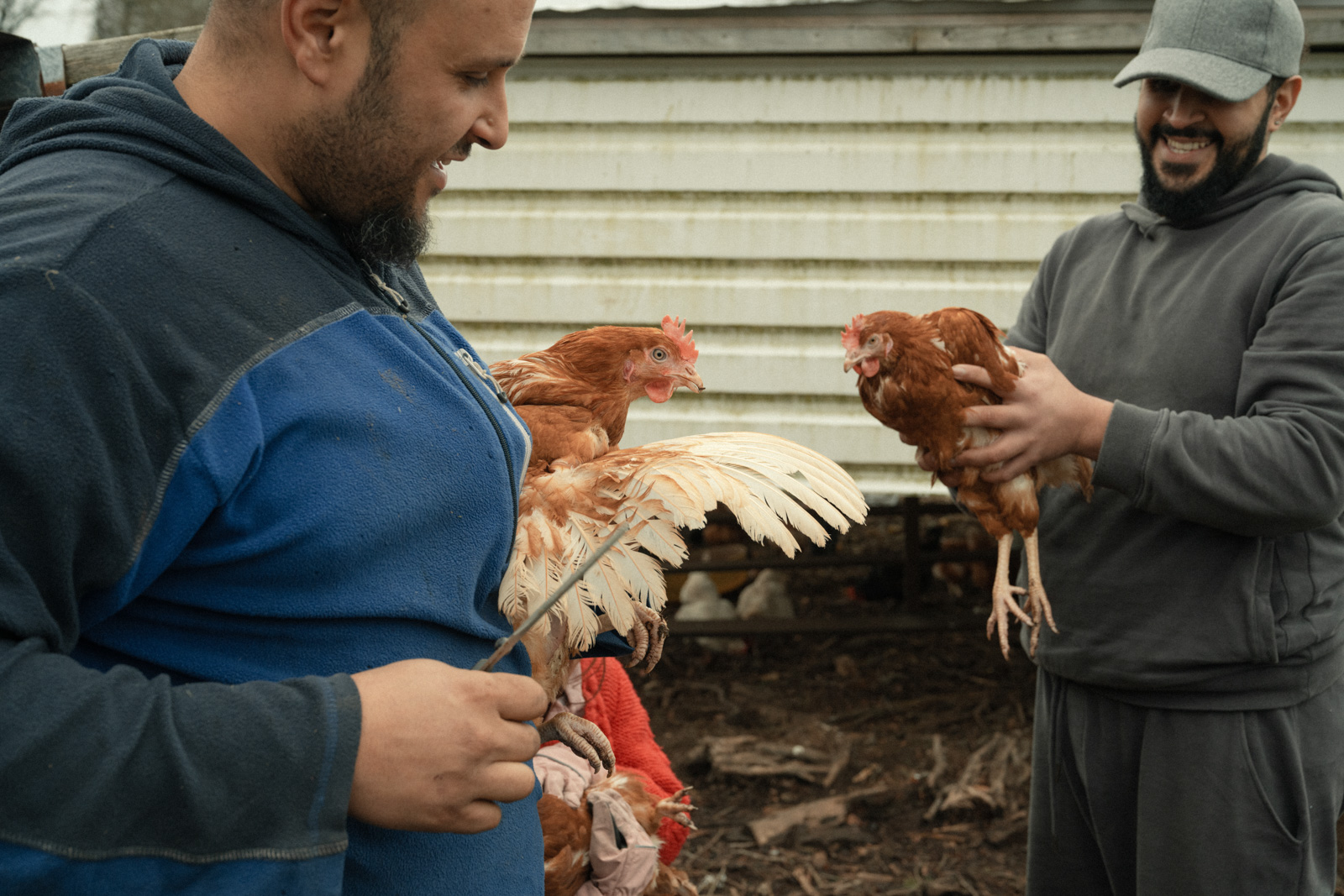
Our final stop of the day is the farm’s vast forest of towering birch trees. Since the family’s arrival, Hassanin has planted 11,000 trees in the area.
Harmony Farm is completely halal and earns most of its income from tourism. It is particularly popular among Muslim families and hosts around 500 guests a year. Though most visitors are from the UK, some have travelled from Pakistan, Kuwait and the United Arab Emirates.
Guests have the option to stay in a cottage or yurt, or to camp in the forest. “One group recently came down from Leeds, where they own a shisha cafe. They made a makeshift lounge out here in the forest,” Hassanin said. “It was pouring down with rain, but they stayed out here for two nights, just puffing away.”
Family-friendly activities on the farm include air-rifle shooting (£25), axe throwing (£35), and a mountain cruise in Hassanin’s jeep (£35). Hassanin, who is a slaughterman and partner for Kent-based halal meat suppliers Abraham Organics, also offers courses on how to slaughter animals (£120).
Hassanin’s family also helps him to run the farm; his wife Elif hosts a bread-making course for £35. Meanwhile, their 11-year-old son, Abdul Malik, gives visitors a show and tell of his collection of reptiles, including advice on how to handle them.
Hassanin, who is of Egyptian heritage, grew up on Park View Estate in Islington, north London, where he attended the all-boys Highbury Grove School. He recalls a childhood filled with green spaces and an overarching sense of freedom. “I had what I would call a very poor but privileged childhood. Playing outside has been a core memory. We used to make things out of grass clippings, or make huge piles of leaves and then jump on them.
“There were also a lot of park visits. I have early memories of going to Clissold Park, where they had deer. I had this excitement about nature, and that stayed with me.”
For Hassanin and Elif — who married in 2010 — the farm affords their children this same sense of freedom. “They spend whole days outside, roaming around, climbing trees, and I never have to worry about them,” Elif says.
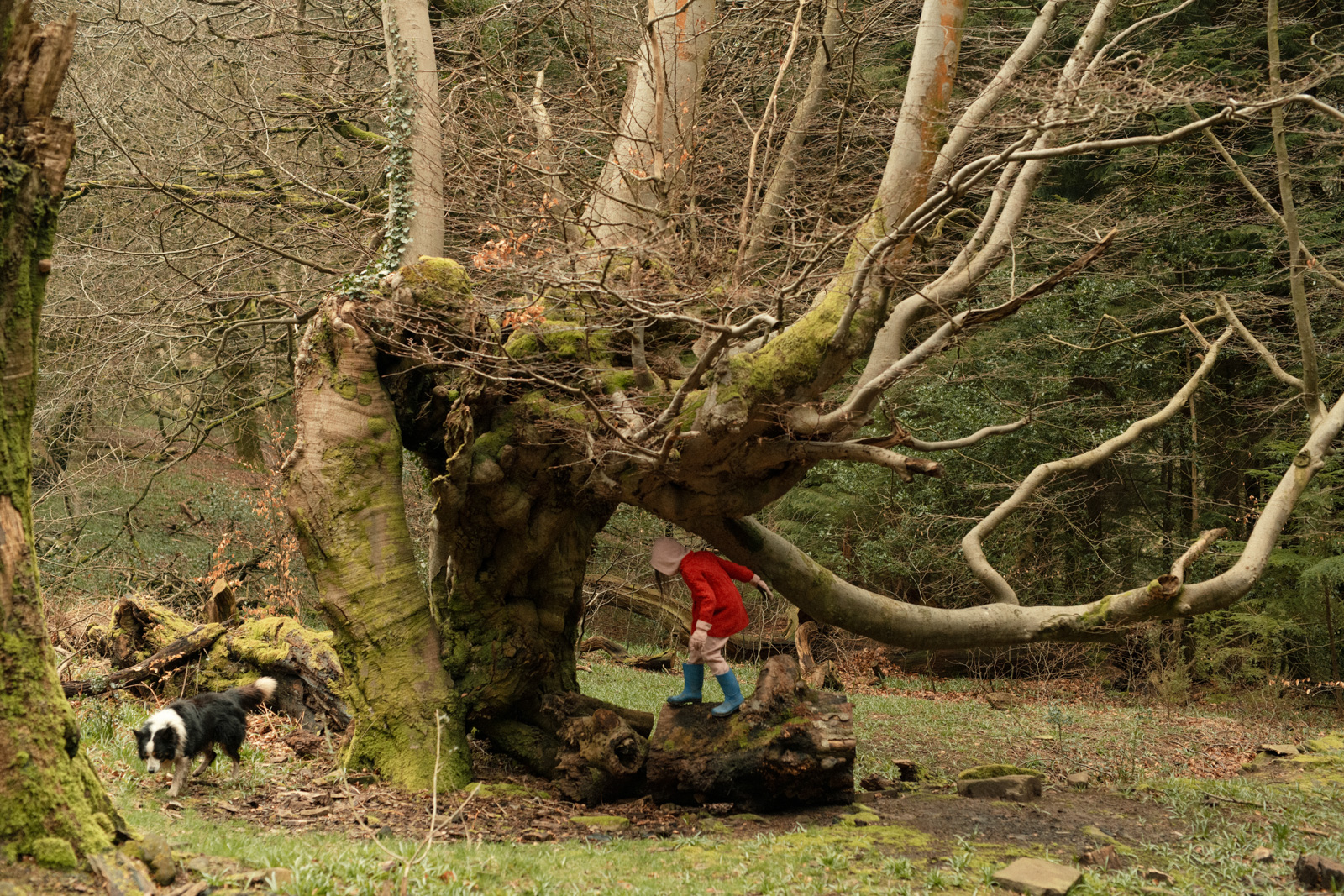
The family is mostly self-sufficient, in keeping with Hassanin’s original vision. Felled trees are chopped up and used for fuel in the house. Most of their meat comes from the farm, while the hens supply around 15 eggs a day.
The garden is used to grow seasonal fruits and vegetables — though when I visit, it is overcoming the winter “hungry gap”. “There are some things we have to buy from the supermarket, but we grow as much as we can,” Hassanin said.
For the Hassanins, the quest for self-sufficiency is more pertinent than ever as the situation in Gaza worsens. Since 7 October, more than 34,000 Palestinians have been killed and more than 76,000 injured during Israel’s attacks. In solidarity with Palestinians, Muslims and non-Muslims across the UK have been boycotting brands including Coca-Cola, McDonald’s and Puma.
“People are talking about boycotts, and the power of your pound, and the impact that boycotts can have,” said Hassanin. “My belief is that if you can grow your own food and become as self-sustainable as possible, boycotts become easy. You are quite literally voting with your fork and saying: ‘I don’t want to be a part of that system’.”
Warming to his theme, he continued: “People think revolution is just going out into the street and putting their fists up. Protests are important, but real revolution is changing systems from the ground up.”
Topics
Get the Hyphen weekly
Subscribe to Hyphen’s weekly round-up for insightful reportage, commentary and the latest arts and lifestyle coverage, from across the UK and Europe
